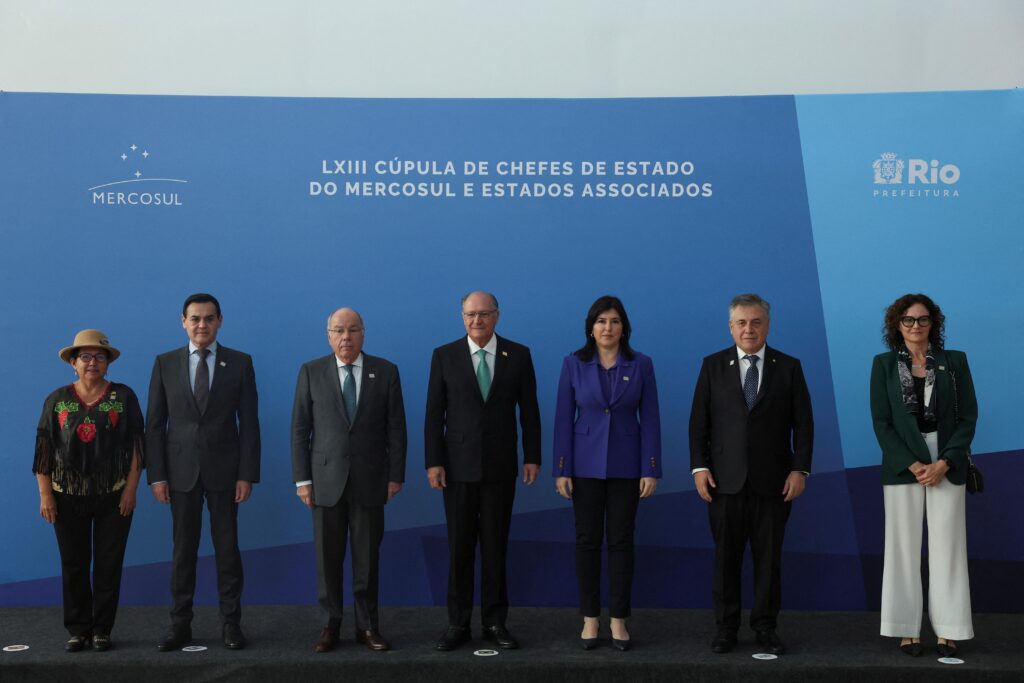EU-Mercosur Trade Talks: Navigating Challenges and Unlocking Economic Potential
As leaders from the Mercosur alliance convene in Buenos Aires for a decisive summit, the future of a long-anticipated free trade agreement with the European Union remains uncertain. Originally celebrated as a groundbreaking partnership between two major economic regions, this deal now faces hurdles amid growing protectionist trends and shifting geopolitical landscapes. Negotiators are grappling with significant differences over agricultural tariffs and industrial goods, while environmental concerns—particularly regarding deforestation—and labor standards add layers of complexity to the dialogue. The decisions made at this summit could reshape international commerce, impacting regional economies and influencing global market trajectories. With tensions escalating, all attention is focused on how these critical negotiations will unfold.
Transforming Economic Ties: The Promise of an EU-Mercosur Free Trade Agreement
The proposed free trade pact between the European Union and Mercosur has the potential to redefine economic relations between these influential blocs. Should an agreement be reached, it would open European markets to a diverse range of agricultural exports from Mercosur nations—including Brazil, Argentina, Paraguay, and Uruguay—while simultaneously granting Mercosur countries enhanced access to Europe’s advanced manufacturing sector and cutting-edge technologies.
This reciprocal exchange is expected to stimulate trade volume growth, foster innovation within local industries in South America by exposing them to competitive pressures, and promote sustainable economic development across both regions. For example, recent data from 2023 indicates that intra-bloc trade could increase by up to 20%, boosting GDP growth rates by approximately 0.5% annually for participating countries.
Nevertheless, environmental sustainability remains a pivotal concern for many European stakeholders wary of Amazon rainforest deforestation rates that have surged over recent years—up nearly 15% compared to five years ago according to satellite monitoring reports. Addressing these issues through enforceable green policies will be essential for ensuring equitable benefits from this partnership.
| Area of Impact | Advantages for EU | Advantages for Mercosur |
|---|---|---|
| Trade Expansion | Diversified agricultural imports including soybeans & beef | Access to high-tech machinery & automotive components |
| Employment Growth | Larger export markets supporting EU manufacturers’ workforce | Catalyzing job creation in agro-industrial sectors & services |
| Foreign Investment Flows td > | Boosted FDI inflows into renewable energy projects td > | Infrastructure modernization funded by increased capital td > |
| Environmental Commitments | Promotion of eco-friendly technologies | Funding sustainable agriculture initiatives |
| Main Concern th > | Tentative Resolution th > tr > | / Environmental Compliance td > | / Establish cooperative frameworks emphasizing transparency via third-party audits ; incentivize adoption of green technologies through subsidies. td > tr > |
|---|---|
| / Implement staggered tariff cuts aligned with domestic producers ’ adaptation timelines. td > tr > | |
/ Design tariff-quota arrangements protecting sensitive sectors initially yet expanding access progressively. td > tr > tbody > table >
Synthesizing Outcomes: What Lies Ahead Post-Summit?This Buenos Aires summit represents more than just another round at negotiating tables; it embodies a crossroads where global trade patterns may pivot significantly amid evolving political realities worldwide. p> The stakes extend beyond immediate commercial interests — encompassing climate action imperatives alongside socio-economic equity considerations crucial during turbulent times marked by inflationary pressures globally. Whether negotiators manage breakthroughs or prolong stalemate will influence not only bilateral ties but also set precedents affecting multilateral agreements elsewhere. Ultimately,the world watches closely hoping this gathering sparks momentum towards forging resilient partnerships capableof navigating complexities inherentin twenty-first-century globalization. |

